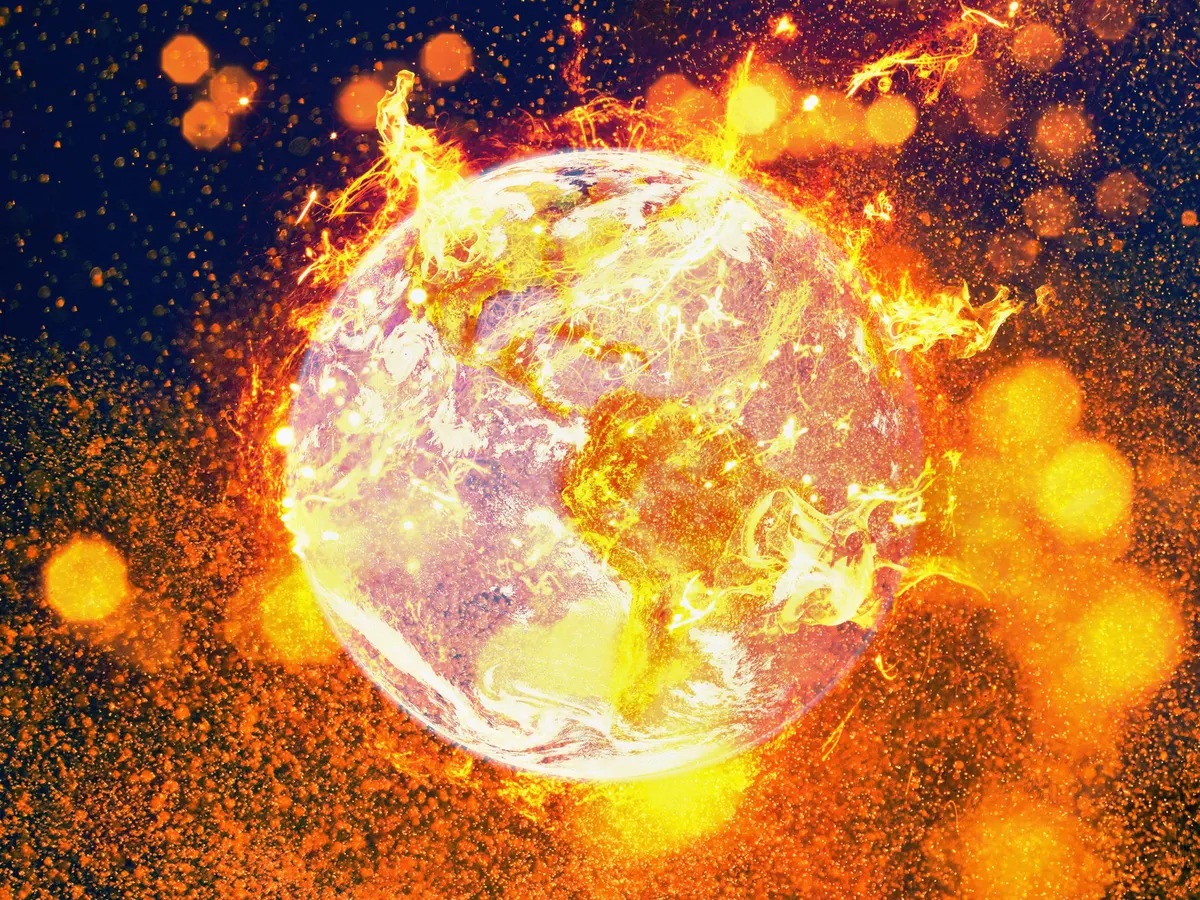BOOK REVIEW: An Inconvenient Apocalypse: Environmental Collapse, Climate Crisis, and the Fate of Humanity by Wes Jackson and Robert Jensen (University of Notre Dame Press, Notre Dame, Indiana. 2022. 170pp.)
Review by SIRION ROBERTSON

This book has received favourable notice from several reviewers. One of them wrote that it “is one of the most important books of our lifetime”. Another remarked that it “pulls no punches”.
My own reaction was somewhat mixed. The book does indeed face and emphasise the centrally important facts that the planet is heavily overpopulated, that we (Homo sapiens) are the cause of the environmental problems, and that significant collapse in the near future (the next 30 years) is almost inevitable. The authors present the situation directly and frankly, with a wealth of documentation. I believe the book should be widely and attentively read.
But although it “pulls no punches”, and the punches are well placed, it is not, in my view, as hard-hitting as the circumstances and subject matter demand. Neither, perhaps, does it throw as many punches as are called for. It is a gentlemanly, scholarly work that will offend nobody, and its handling of the subject is more restrained, in my opinion, than we deserve. This restraint may arise from the authors’ clearly stated belief that nothing can be done to avert the coming crisis. Why get steamed up and cause pointless offence? Why indeed. The damage is done. The die is cast.
But although they hold out very little – if any – hope of our avoiding disaster, they do make the point that we can at least give the matter our attention and sketch out some sensible guidelines for humanity’s next phase. They offer several suggestions and insightful comments, and there is plenty of food for thought. But despite the authors’ obvious sincerity and high academic standing, I have a distressing suspicion – which I hope is wrong – that the overwhelming importance of its message may not earn the book the attention it deserves.
The authors remark that they are products of comfortable, middle-class America – one of the world’s most powerful and wealthy nations. I found myself wondering whether the book would have been significantly different in tone if they had lived all their lives in southern or central Africa. They take several politically correct swipes at capitalism and colonialism, to which they ascribe a greater causative role in our problems than I see appropriate. In the unlikely event that any African leaders or opinion formers read the book, this anti-colonial, anti-capitalist bias will probably be seen as the central message – which, quite clearly, it is not. But such a reading would, I believe, reduce the book’s potential effectiveness in parts of the world to which its warnings are especially relevant. Africa requires no further encouragement to denigrate capitalism and colonialism. On the other hand, it does have a desperate but largely unrecognised need to look to itself as a major source of its problems. The book is unlikely to encourage this.
I have reservations about some of the authors’ comments bearing on Christian teachings. Here too, they are scrupulously – and openly – careful to say nothing contentious. But a bland treatment of complex, important and inevitably contentious issues, even when the arguments are transparently sincere and factually and philosophically sound, is perhaps not the best way of engaging the attention of ordinary, thoughtful and reasonably well-educated readers. Yet it seems to me that this is the sector at which the book is aimed.
Notwithstanding these small reservations, I strongly recommend the book to anyone interested in our local and global dysfunctionalities and dismal prospects. It is well-written, closely argued, highly informative and extensively documented. There are 16 pages of notes and references and a detailed Index. And there can be absolutely no doubt about the importance of the subject matter.



